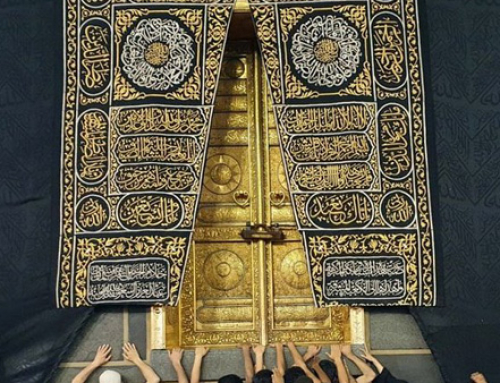Ibn Ataa Allah as-Sakandari
October 25, 2012
Only an ignorant despises the Wird. The Wārid is in the Next World, and the Wird elapses with the passing of this world. What should be tended to and cared for most is what cannot be replaced when missed. The Wird is His demand from you, and the Wārid you request of Him. How does what He demands of you amount to what you request of Him?
Only an ignorant despises the Wird which is a deed of piety that brings closer to the Lord, the Forgiver, and long for a Wārid.
A Wārid is what is revealed to the heart of knowledge and secrets, and is initiated by the Wird after the heart is purified by righteous deeds that bring Anwār from the Ḥadra [Presence] of The All-Sufficient, The Giver.
A Wird is what people present to Al-Ḥaqq, and the Wārid is what He the Almighty grants them.
Thus, the Wird should have privilege over the Wārid for two reasons:
The first is that the Wārid is present in the Hereafter; it is what is revealed to the heart of the slave of Divine knowledge and Lordly secrets, while the Wird is elapsed with the end of this world, and the Hereafter is not a place for Taklīf [accountability]. What should be tended to and cared for most is what cannot be replaced when missed if its time passes.The second is that the Wird is His stipulation and the Wārid is what you request of Him, and how does what He demands of you amount to what you request of Him? Fulfilling His dues more befits slave-hood than requesting your preferred fortunes. Only when you purify of your flaws will the doors to the unknown become opened to you.
The author uses this to direct the murīds [seekers] who long for Wāridāt [revelations] and abandon Awrād [litanies], while it is the Awrād that bring about the Wāridāt.
Provisions flow according to willingness, and Anwār [lights] shine according to clarity of souls and spirits.
Provisions from the Ḥadra [Presence] of the King, the Munificent, flow according to the slave’s readiness by purifying his heart and attending to his Awrād [litanies].
Anwār shine in the ‘Ārif’s [Expert of God] heart according to how much they cleared the soul of the turbidity of attaching to othernesses and impressions.
This Ḥikma confirms the Sharī’a [Islamic Law]’s call for adopting the means.
The other Ḥikma: “Seldom are Godly Wāridāt except sudden…” states the actual fact of the matter, so there is undoubtedly no contradiction or incompatibility.
The heedless contemplates what he will do when he wakes up. The wise contemplates what God will do with him.
The first thought that comes to he who is heedless of God Almighty when he wakes up is relating actions to his self and his will. He says: what will I do today? and in so deserves that God Almighty refers him back to his self.
In contrast, the first thought that comes to the mind of the wise is relating all actions to God –Exalted be He, and thinking: what will God do with me? This is due to his perpetual alertness, and in so deserves that God assists him to the best deeds and guides him to the best states.
The first thought that comes upon the slave shows the extent of his Tawḥīd [affirmation of the Divine Oneness].
Some said: “whoever is guided to al-Ḥaqq does not regard his self, and whoever is guided to his self does not regard God”. So contemplate, when an event occurs: if your heart refers to your help and power, then you are severed from God, while if your heart is referred to God, then you are among those who reached Him.
Omar Ibn Abdul Aziz –may God be well pleased with him- used to say:
I have come to only rejoice
in what destiny and fate brings”.
Thereby, whoever reaches this station should pray saying: “O Lord, I have no power to bring upon my self any harm or benefit, or life or death or resurrection, and I can only take what You give me and avoid what You shield me, O Lord, please aid me towards what You like and accept, for You are The Lord of The Greatest Bounties”.






![No Wārid, No Wird The Greatest Karāma [miraculous gift] is Righteousness](https://en.yassine.net/wp-content/uploads/2012/11/Ramadan-Kareem-500x383.jpg)
